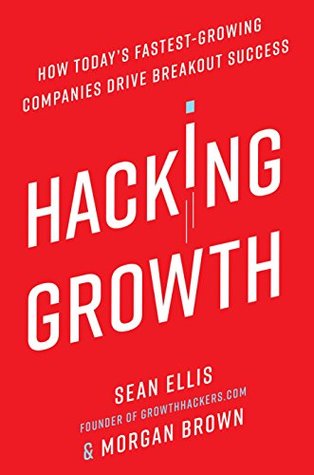More on this book
Community
Kindle Notes & Highlights
by
Sean Ellis
Read between
November 8 - November 8, 2022
Once again, the solution had been found in just weeks, using a recipe that included healthy doses of out-of-the-box thinking, cross-company collaboration and problem solving, real-time market testing and experimentation (conducted at little or no cost), and a commitment to being nimble and responsive in acting on the results.
Perhaps more important, companies’ growing ability to collect, store, and analyze vast amounts of user data, and to track it in real time, was now enabling even small start-ups to experiment with new features, new messaging or branding, or other new marketing efforts—at an increasingly low cost, much higher speed, and greater level of precision. The result was the emergence of a rigorous approach to fueling rapid market growth through high-speed, cross-functional experimentation, for which I soon coined the term growth hacking.
We have access to the data, the challenge now is narrowing it down to Key Performance Indicators (ideally just 1 per goal) and focusing. There can be an inundation of data that makes data-driven decision-making almost impossible without focus. Knowing WHAT to measure & improve is the real challenge.
And while the details of how it is implemented vary somewhat from company to company, the core elements of the method are: • the creation of a cross-functional team, or a set of teams that break down the traditional silos of marketing and product development and combine talents; • the use of qualitative research and quantitative data analysis to gain deep insights into user behavior and preferences; and • the rapid generation and testing of ideas, and the use of rigorous metrics to evaluate—and then act on—those results.
growth hacking is a team effort, that the greatest successes come from combining programming know-how with expertise in data analytics and strong marketing experience, and very few individuals are proficient in all of these skills.
One of the cardinal rules of growth hacking is that you must not move into the high-tempo growth experimentation push until you know your product is must-have, why it’s must-have, and to whom it is a must-have: in other words, what is its core value, to which customers, and why.
The companies that grow the fastest are the ones that learn the fastest. The more experiments you run, the more you learn. It’s really that simple. The high volume is ideal, because most experiments fail to produce the results you’re hoping for.
THE GROWTH HACKING CYCLE Recall that the stages of the process are: data analysis and insight gathering, idea generation, experiment prioritization, running the experiments, and then returning to the analyze step to review results and decide next steps, in a continuous loop. No matter what your product or what aspect you are testing, each turn through this cycle should be completed on a consistent interval, preferably in one or two weeks (at GrowthHackers we use a one-week cycle). The cycle is managed by a one-hour weekly growth team meeting to review results and agree on the next week’s set
...more
The key takeaway here is that you cannot know ahead of time which experiments are going to be most effective. The best you can do is stay nimble and data-driven:
This is true. This is where creativity comes in, and listening to case studies of what others have tried, knowing that what works for one company might not work for another. However, always be testing and you will find out what moves the needle for your business.


